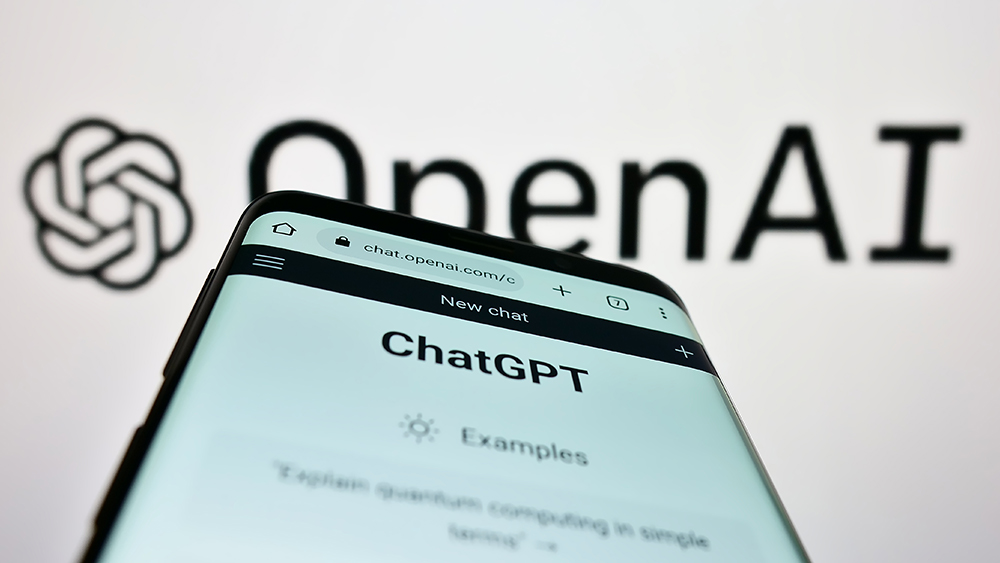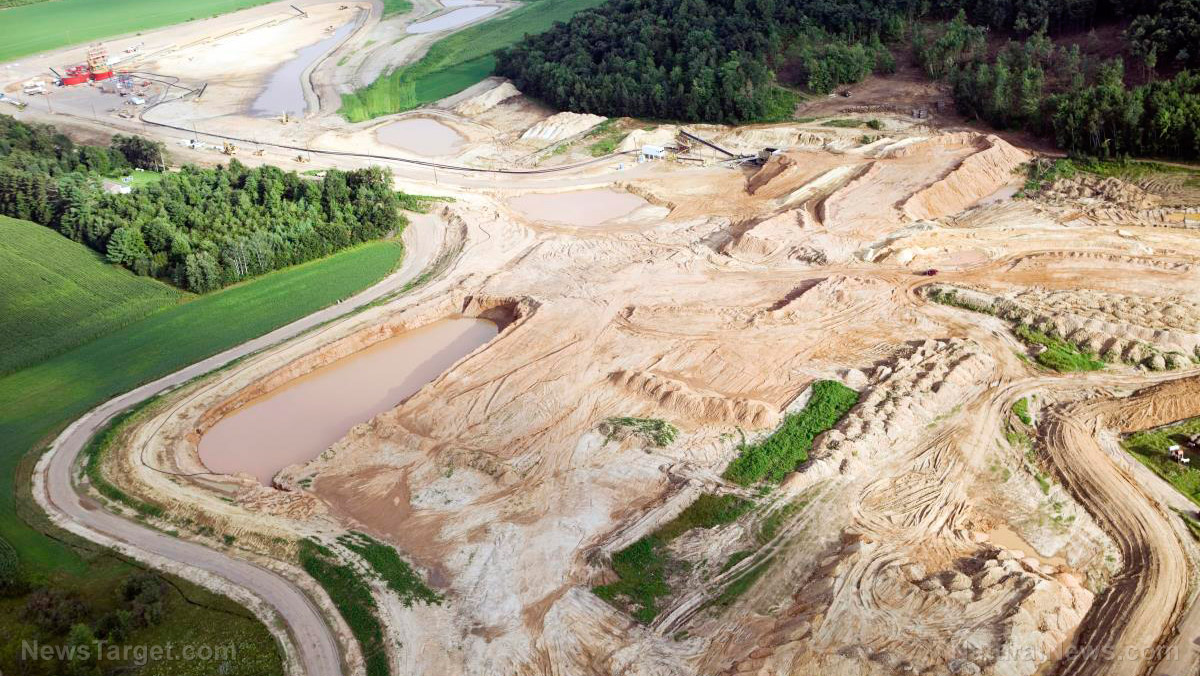Rep. Michael Cloud and Mike Adams: Will Texas’ ENERGY BOOM help power the AI revolution?
03/26/2025 / By Kevin Hughes

- Texas is becoming a central player in America’s artificial intelligence (AI) revolution, attracting major tech companies like Tesla, Oracle and OpenAI due to its business-friendly policies and abundant energy resources. However, the state faces the challenge of meeting the soaring energy demands of AI data centers.
- AI data centers consume significantly more energy than traditional operations, with a single AI search using 10 times the energy of a standard Google search. Texas’ energy grid, managed by ERCOT, is under pressure to provide reliable and scalable energy to support this growth.
- Texas’ reliance on intermittent renewable energy sources like wind and solar poses risks to grid stability. Rep. Michael Cloud advocates for a diversified energy portfolio, emphasizing the importance of base-load power sources such as nuclear, natural gas and coal, with modern nuclear reactors offering a scalable and flexible solution.
- Water scarcity is another critical issue, as energy production often requires significant water resources. Texas is exploring innovative solutions, such as rainwater collection, to address this challenge and streamline regulatory processes for sustainable energy expansion.
- Texas’ energy-friendly policies, abundant resources and resilient culture position it to lead the AI revolution. By balancing growth with sustainability, investing in advanced energy technologies, and addressing water scarcity, Texas can solidify its role as a 21st-century economic powerhouse.
Texas, long celebrated for its oil fields and independent spirit, is now emerging as the epicenter of America’s artificial intelligence (AI) revolution. Tech giants like Tesla, Oracle and OpenAI are flocking to the state, drawn by its business-friendly policies and abundant energy resources.
But as the Lone Star State positions itself as the nation’s AI hub, a critical question looms: Can Texas generate enough energy to power its own success? In a recent “Health Ranger Report” interview, the Health Ranger Mike Adams and U.S. Rep. Michael Cloud (R-TX) talked about the challenges and opportunities of Texas’ energy boom.
As the state welcomes unprecedented investments in AI data centers, the demand for reliable, scalable energy is skyrocketing. But with this growth comes a pressing need to rethink Texas’ energy strategy—one that balances innovation with sustainability and resilience.
AI data centers are energy hogs. According to Cloud, a single AI search consumes roughly 10 times the energy of a traditional Google search. As AI technology advances, the energy demands of these data centers will only grow. Texas, already home to some of the nation’s largest data centers, is now facing the daunting task of meeting this exponential energy demand.
“We’re going to need every pie we can make,” Cloud said, emphasizing that the Lone Star State must embrace a diverse energy portfolio to keep pace with its booming tech sector. The state’s energy grid, managed by the Electric Reliability Council of Texas (ERCOT), is under increasing pressure to deliver not just more energy, but more reliable energy.
The case for base-load power
One of the key challenges Texas faces is its reliance on intermittent energy sources like wind and solar. While renewable energy has played a significant role in the state’s energy mix, its variability poses a risk to grid stability. Cloud highlighted the importance of base-load power — energy sources that provide consistent, on-demand electricity — such as nuclear, natural gas and coal.
“We need to be looking at reliable base-load energy,” said the congressman representing Texas’ 27th congressional district. “Let’s do more nuclear. The technology has advanced way more than it was 20 or 30 years ago with small modular reactors along with others everything else that’s in the mix.” (Related: Small modular reactors provide nuclear energy solutions for under-developed countries.)
Nuclear energy, in particular, has emerged as a promising solution. Modern nuclear reactors are designed with fail-safes that prevent catastrophic failures, making them a viable and scalable option for Texas’ energy needs. Unlike wind and solar, nuclear power can be ramped up or down based on demand, providing the flexibility required to support AI data centers and other high-energy industries.
Energy production isn’t the only challenge Texas must address. Water scarcity is another critical issue, especially as energy generation often requires significant water resources. Cloud pointed out that Texas’ Gulf Coast offers an abundant water supply but harnessing it effectively will require innovative solutions.
Cloud said water is going to be one of the big challenges as Texas looks to expand energy production. He added that Texans are now exploring ways to streamline regulatory processes and make federal investments to address this issue.
Rainwater collection is one potential solution. In Central Texas, for example, some facilities are already using rainwater for industrial purposes, reducing reliance on treated well water. Cloud acknowledged the potential of such initiatives, noting that every family could benefit from simple rainwater collection systems.
Texas is uniquely positioned to lead the AI revolution
Despite these challenges, Texas is uniquely positioned to lead the AI revolution. Its energy-friendly policies and abundant resources make it an attractive destination for tech companies seeking to build massive data centers. Unlike states like California, which have imposed strict regulations on energy use, Texas offers a welcoming environment for innovation.
“Texas is sitting on the new currency of the golden age of our future, which is energy,” Adams said.
The state’s culture of resilience and self-reliance also plays a crucial role. Texans have a long history of stepping up to meet challenges, whether it’s recovering from natural disasters or building world-class industries. This can-do attitude, combined with a commitment to innovation, positions Texas to thrive in the AI era.
As Texas continues to attract tech investments, the state must strike a delicate balance between growth and sustainability. Diversifying its energy portfolio, investing in next-generation nuclear technology, and addressing water scarcity will be key to ensuring that Texas can power the AI revolution without compromising its future. The Lone Star State’s golden age is just beginning – and the world is watching.
Follow Power.news for more news about energy sources in America.
Watch the full interview between U.S. Rep. Michael Cloud (R-TX) and the Health Ranger Mike Adams below.
This video is from the Health Ranger Report channel on Brighteon.com.
More related stories:
Health Ranger Report: Texas Rep. Michael Cloud explains how to RESTORE AMERICA.
Energy expert: Texas power outage could have been prevented with significant investment.
Sources include:
Submit a correction >>
Tagged Under:
AI revolution, artificial intelligence, baseload power, Big Tech, computing, electricity, energy boom, energy supply, Glitch, greater texan, Health Ranger, Health Ranger Report, information technology, Michael Cloud, Mike Adams, nuclear, nuclear energy, power, power grid, tech giants, Texas
This article may contain statements that reflect the opinion of the author
RECENT NEWS & ARTICLES
COPYRIGHT © 2017 FUTURETECH.NEWS
All content posted on this site is protected under Free Speech. FutureTech.news is not responsible for content written by contributing authors. The information on this site is provided for educational and entertainment purposes only. It is not intended as a substitute for professional advice of any kind. FutureTech.news assumes no responsibility for the use or misuse of this material. All trademarks, registered trademarks and service marks mentioned on this site are the property of their respective owners.



















